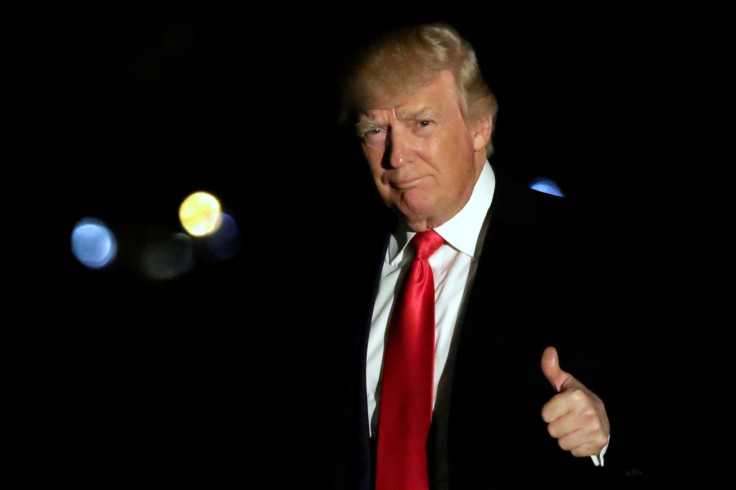What Is Law And Order? 6 Things To Know About Trump's Promises About Police

During the swearing-in of Attorney General Jeff Sessions earlier this month, President Donald Trump touched base on three executive orders that he said were “designed to restore safety in America.”
Under the Trump administration, the president promised “law and order,” which is strict enforcement of laws that is supposed to help society function in an orderly manner.
"Crime Reduction and Public Safety": Under this executive order, signed Feb. 9, Sessions will work to create a new task called “Task Force on Crime Reduction and Public Policy.” He was tasked with coming up with different strategies to reduce crime, mainly “illegal immigration, drug trafficking, and violent crime.” Trump also expects an annual report.
- "Preventing Violence Against Federal, State, Tribal, and Local Law Enforcement Officers": This executive order has tasked the Justice Department and attorney general with developing a strategy with local, state, and federal agencies to prosecute people who commit crimes against police. The attorney general will also report his findings and recommendations. “It’s a shame what’s been happening to our great, truly great law enforcement officers,” Trump said at the signing ceremony Feb. 9. “That’s going to stop as of today.”
- "Enforcing Federal Law with Respect to Transnational Criminal Organizations and Preventing International Trafficking": This executive order brought the secretary of state, attorney general, secretary of homeland security, and director of national intelligence together to co-chair and direct the existing Interagency Threat Mitigation Working Group. They will all submit a report to Trump within four months, then annually, describing the international drug cartels “along with any recommended actions for dismantling them.”
Trump delivered a speech to the Major Cities Chiefs Police Association Feb. 8, during which he laid out his promises to and expectations for law enforcement under his presidency.
- Trump said there would be “zero tolerance” for violence against law enforcement officers. He added that he would pass a law to punish those who attack police officers. The act would be considered a hate crime.
- Law enforcement and the public should report people living in the U.S. illegally and involved in any criminal activity to the Department of Homeland Security, the president said. “I want you to turn in the bad ones. Call Secretary Kelly's representatives and we'll get them out of our country and bring them back where they came from, and we'll do it fast,” Trump said.
- Decrease crimes in Chicago was a priority for the president. “We’ve allowed too many young lives to be claimed,” he said.
- Trump's administration planned to give law enforcement the resources to recruit and retain officers.
- Trump promised to support law enforcement with federal grants as he takes away federal funding from sanctuary cities.
- The president pledged to reinstate a federal program suspended by former President Barack Obama that allowed the transfer of surplus military equipment to police departments.
© Copyright IBTimes 2025. All rights reserved.






















